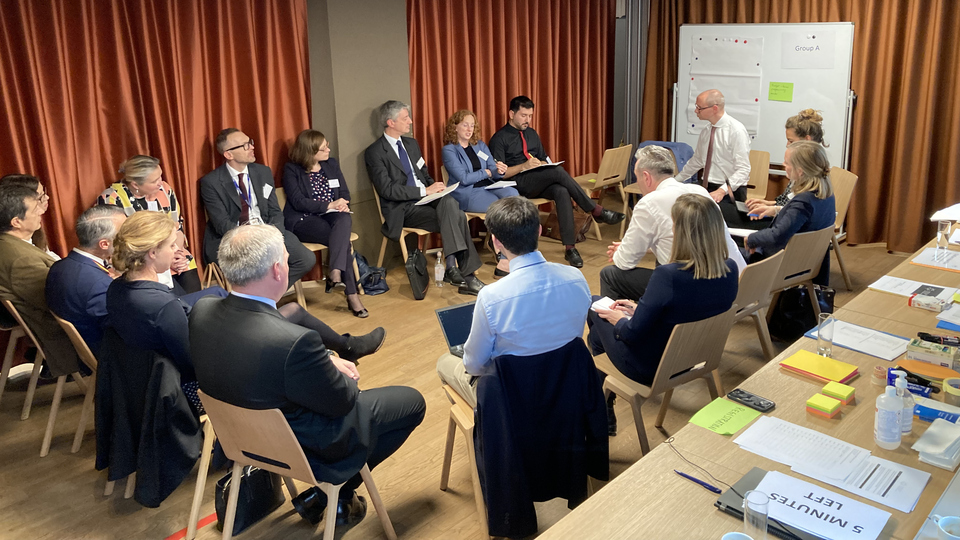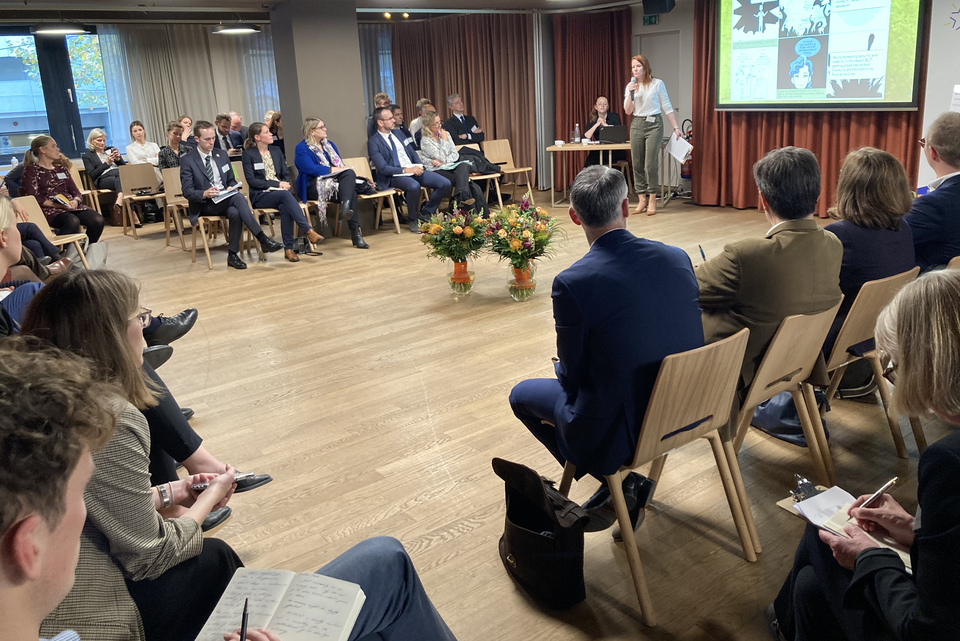The Civilian CSDP Autumn Forum: Reconciling Ambitions with Capabilities
The Forum was co-organised with the Federal Ministry for European and International Affairs of Austria on 27-28 October 2022 at the premises of the Austrian Permanent Representation to the European Union in Brussels
To provide an informal exchange platform for EU Member States (MS) to facilitate upcoming formal negotiations on the new Civilian CSDP Compact, the European Centre of Excellence for Civilian Crisis Management organised a two-day interactive forum for approximately 80 pre-registered participants, coming from a variety of backgrounds: Policy experts from Member States’ Permanent Representations to the EU, Heads of Units from relevant national ministries, national JHA actors, representatives of national law enforcement units as well as representatives of seconding agencies, the European External Action Service and the European Commission. The event built on the success of the Civilian CSDP Summer Forum, which was organised in Berlin last June, supporting MS in their efforts to define a new Level of Ambition for civilian CSDP.

With input from the Forum’s main moderator Florence Gaub, the CoE created an engaging scenario-based exercise that helped identify common priorities and a shared understanding of challenges on the way to a strengthened civilian CSDP. This brought the ambitions of MS closer to each other and allowed them to compare their national positions on the future of civilian CSDP and the new Compact. It also highlighted the utility for a more scenario-based approach to planning civilian CSDP.
By bridging the discussion of the Summer Forum on type, size, and numbers of civilian CSDP, the Autumn Forum went beyond the How of missions, and touched upon the Why of civilian CSDP as a foreign policy instrument.
Conclusions were, among others:
- Civilian CSDP missions are both a political- and a crisis-management tool as well as a short- and a long-term tool.
- Flexibility needs to be applied in terms of size and numbers, modular and scalable mandates and tools (including in terms of more agile secondment features).
- Missions needs to be evaluated and their impact assessed, which makes it easier to make a cognisant decision about (dis-)continuation of missions, and possibly opening of new ones.
- The internal- and external security nexus needs to be enhanced. The inclusion of JHA actors at all levels of negotiations (national, EU) on the new Civilian CSDP Compact is crucial.
- MS need to agree on a regular and structured civilian capability development process.

